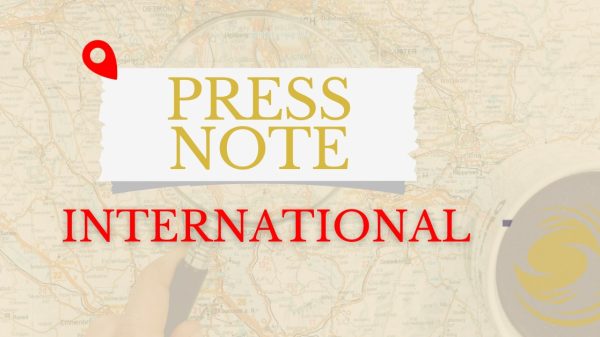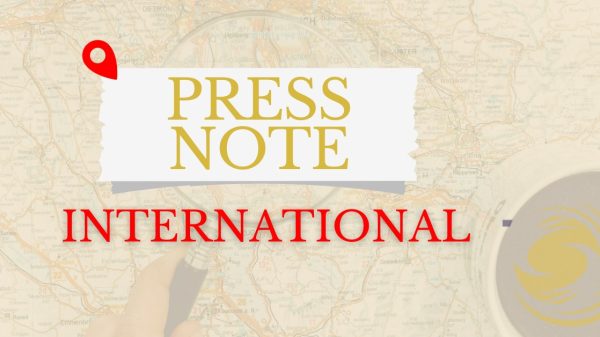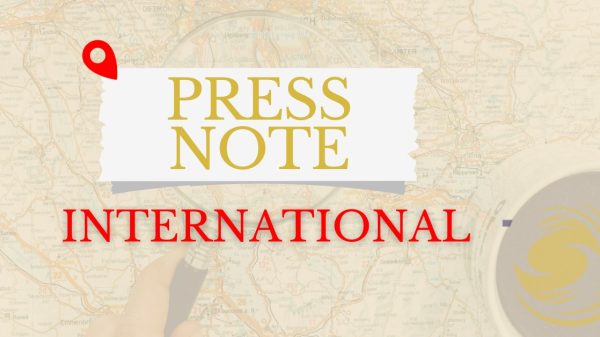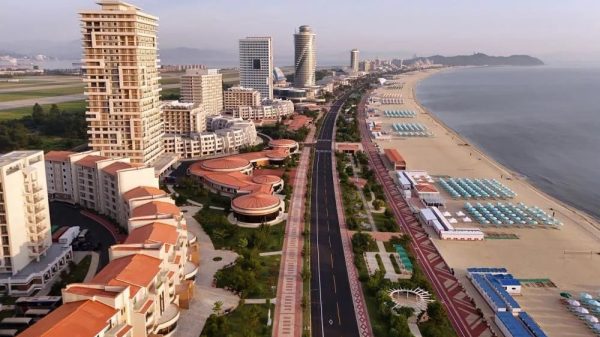Malaysia prepares heavier ‘sugar tax’ in bid to combat diabetes

- Update Time : Sunday, September 15, 2024

New anti-money laundering laws in Singapore target kingpins’ profits from environmental crime
The straits Times,
SINGAPORE – In a 2022 Interpol video, Mr Kittichai Runglaiboonwong from Thailand’s Department of National Parks walks around piles of illegally logged timber.
At US$290 (S$380) per kg, a 59kg bag of agarwood could easily fetch about US$14,500, he says.
The video did not mention whether the proceeds from this crime could have been laundered.
But if dirty money from such crimes were to pass through Singapore, the Republic will soon have powers to investigate it.
In August, Parliament passed a new Bill that allows the authorities to investigate illicit gains from a wider range of foreign serious environmental offences such as illegal logging, mining and waste trafficking.
This represents a significant expansion of powers.
Previously, the authorities could track tainted funds from foreign environmental crimes only if they were also serious offences under Singapore’s laws, such as wildlife trafficking.

Minister for Digital Development and Information Josephine Teo told Parliament in August that the authorities face limitations in investigating illegal logging, mining and waste trafficking as they are not applicable in Singapore’s context.
But as these crimes are some of the largest contributors to transnational organised criminal activities in the East Asia and Pacific region, there is a high likelihood of funds from such crimes flowing into Singapore, said Mrs Teo, who is also Second Minister for Home Affairs.
A 2021 report by the Financial Action Task Force (FATF), a global financial crime watchdog, said environmental offences generate up to $365 billion in criminal gains annually. Of this figure, 66 per cent comes from forestry crime, illegal mining and waste trafficking.
When asked what prompted the new laws, the Ministry of Home Affairs (MHA) said: “As a responsible member of the international community, we need to do our part to help tackle this global problem. The legislative amendments will allow us to do so.”
Mr Thong Chee Kun, partner and co-head of fraud, asset recovery and investigations practice at law firm Rajah and Tann, said the expanded scope of the laws allows for greater cooperation with foreign counterparts, which could result in prosecutions both in Singapore and overseas.
Additionally, with wildlife trade offences listed as serious offences under the Organised Crime Act from Aug 30, offenders could receive enhanced penalties of up to 20 years’ jail and will have their ill-gotten gains confiscated.
Malaysia prepares heavier ‘sugar tax’ in bid to combat diabetes
Nikkei Asia,
KUALA LUMPUR — Malaysia plans to introduce a heavier tax on sugar-sweetened beverages, hoping to reduce the public’s sugar consumption as the government tackles diabetes and other non-communicable diseases in the country.
The proposed tax, announced by Health Minister Dzulkefly Ahmad earlier this week, is set to be introduced in the upcoming draft budget for 2025, which is slated to be tabled in parliament on Oct. 18.
Malaysia introduced a “sugar tax” in 2019, imposing 0.4 ringgit (9 cents) per liter for ready-to-drink beverages with more than 5 grams of sugar per 100 milliliters and fruit- or vegetable-based drinks exceeding 12 grams of sugar per 100 milliliters. Freshly prepared drinks served at eateries are exempt from the tax.

This year, the government raised the tax rate to 0.5 ringgit per liter. Dzulkefly said the increase helped reduce sugary drink consumption by 9.25% nationwide.
“We see that the SSB (sugar-sweetened beverage) tax has been effective in reducing sugar consumption among the public,” Dzulkefly said, explaining the government’s rationale for the new tax, according to local English daily The Star.
Details of the new scheme have yet to be specified. However, Dzulkefly had earlier suggested in July in parliament that the government would further increase the levy by 20%.
The latest proposal comes as the Southeast Asian country grapples with public health issues that persist even after introducing the current sugar tax in 2019.
According to the health ministry’s National Health and Morbidity Survey 2023, around 3.6 million Malaysians, or 15.6% of adults, were diabetic. Over half a million Malaysians suffer from major non-communicable diseases, including diabetes, hypertension, high cholesterol and obesity. The prevalence of overweight and obesity among Malaysian adults has increased from 44.5% in 2011 to 54.4% in 2023.
Subsidise people, not petrol
The Economist,
The difficulty is that the petrol subsidy is popular. Although it lopsidedly benefits the better-off, every Nigerian swiftly feels the pain when it is reduced. A recent sharp increase in the official price of petrol has raised the cost of everything from groceries to electricity (since Nigerians often use petrol-powered generators at home). People are furious. Last month police fired on crowds protesting against the high cost of living, leaving more than a dozen dead. The government is terrified of provoking further unrest. Yet a failure to reform will only prolong the misery.

There are two possible ways to persuade voters that scrapping the subsidy will ultimately benefit them more than it hurts. One is to end the fuel shortages by letting Mr Dangote (and anyone else) sell petrol at market prices. The transition will not be smooth, owing to bottlenecks in the domestic supply of crude oil. And it will mean higher prices, which people will hate. But Nigerians are sympathetic to the nationalist view that, as an oil producer, their country should refine its own fuel. And the government might find political cover by blaming higher petrol prices on Mr Dangote.
More important, it should invest the money saved by scrapping the fuel subsidy in health care, education and a less threadbare social safety-net. Mere promises to do so will be widely disbelieved. Many Nigerians assume, with some justification, that any spare cash in state coffers is likely to be stolen or wasted on vanity projects. It is up to Mr Tinubu’s government to prove them wrong, and quickly.
Cut costs up to 80% with mass weddings
Khaleej Times,
Many UAE couples turn to mass weddings and joint ceremonies to reduce financial burdens while celebrating their love. This trend brings together multiple couples for a celebration, offering significant economic benefits.
Experts estimate that combining weddings into one larger event can save nearly 70-80 per cent of the overall budget.
While mass weddings are deeply rooted in Emirati culture and receive support from governmental initiatives, expats also embraced it as a way to manage expenses.

“Hosting mass weddings can be significantly economical. You can save on costs for wedding halls, hotel rooms, decorations, entertainment, and technical aspects such as sound, lighting, photography, videography, and more,” said Gauri Chadha, creative director of Big Night Events (BNE).
According to Chadha, there has been an increase in mass weddings among young couples. “Although the exact percentage varies, couples could save almost 70 to 80 per cent of their budget by combining weddings into one larger event,” she explained.
Onion export duties reduced 40% to 20%
The Hindu,
Union Agriculture Minister Shivraj Singh Chouhan on Saturday welcomed the decision to increase the import duty on edible oils from zero to 20%, saying it was a big move for farmers’ welfare.
In a statement, the Minister also welcomed the decision to remove the minimum export duty on Basmati rice, and the increase in basic duty on refined oil to 32.5%.
He said these proved that the Narendra Modi government stood for farmers’ welfare.
Mr. Chouhan said if other components were to be added, the total effective duty on imported edible and refined oils would be 27.5%.
With this step, he said, all oilseed farmers, especially soya bean and green gram farmers, will get good prices for crops that are about to arrive in the market.
The farmers from his home State of Madhya Pradesh have been protesting over the low prices for soya bean.

The Centre had advised the State government to procure the crop at the minimum support price. Mr. Chouhan hoped that sowing of oilseeds would increase in the Rabi season, and mustard crop would get good prices.
More soya bean
“The production of soya bean will also increase, and it will be exported and along with this, other sectors/areas related to soya will also get benefits,” he said.
He said the Centre was sensitive to the welfare of farmers, and the decision to remove the minimum export duty on Basmati rice was also to help farmers.
“With the removal of export duty, Basmatiproducing farmers will get a fair price for their produce and it will result in increase in demand for Basmati rice and exports will also increase,” he said.
He said recently, the Centre had reduced the export duty on onion from 40% to 20%. “With the reduction in export duty, onion farmers will get good prices for onions and exports will also increase. This decision of the government will directly benefit onion farmers as well as other related sectors,” he said.









Leave a Reply